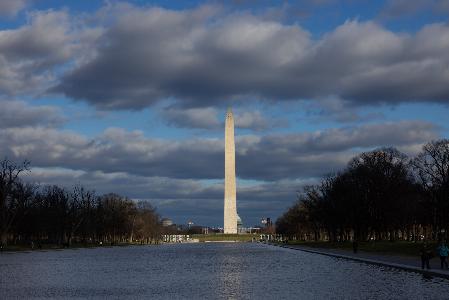Think back to March 2020, when almost everything — work, school, even medical visits — moved online.
Now, imagine that process happening in a world where someone could also patent the very concept of telehealth. One company could claim to own tracking a remote patient’s compliance with treatment, while one person could use a patent to try and stop everyone in the country from remote health monitoring. In that world, we all lose out. Whoever held the patent could target startups developing innovative telehealth solutions and either shut them down or demand high licensing payments. They could also go after medical practices offering telehealth services and accuse them of infringement. This would mean less telehealth care and fewer options in the market, contributing to higher costs and less patient access — all because one company thought it should own the idea of remotely treating patients.
Unfortunately, this does not require much imagination. About a decade ago, a company held a patent that essentially claimed telehealth. It filed dozens of infringement cases and sent demand letters to healthcare companies of all sizes, including startups. The patent holder avoided scrutiny for a while by settling its lawsuits, but a federal court eventually held that the patent was not eligible for protection because the US patent system does not let you own the idea of remote patient monitoring.
This is just one story that illustrates how patents affect the lives and work of every business and person across the country. Of course, the many wrongfully sued telehealth companies and the public alike could benefit from a patent system that did not allow these sorts of abuses. But it could have been even worse: What if, for example, our law allowed patents on mere ideas? Or if the law defaulted to pulling all allegedly infringing products from the market? We would have lost all types of telehealth offerings without any corresponding benefit.
The federal government makes laws, sets policies and oversees every other piece of our patent system — from defining what qualifies as a new invention to setting the procedure for clearing out invalid patents to reviewing individual applications. How can we ensure the patent system operates at peak capacity and enables US companies to keep developing great new solutions for everybody?
One step we can take is to get involved. That’s why we at Engine, during our just-commenced second annual Patent Quality Week, are trying to demystify the patent system and chart a course for more meaningful and comprehensive public engagement.
Patent law is supposed to serve the public and not just help large, asset-rich companies build enormous patent portfolios. The rest of us, and our experiences, should matter most. And yet, patent law can be highly technical and complicated, which can frustrate how (and whether) people understand those experiences and share them with policymakers.
Startups and small businesses hit with frivolous cases know the patent system because they experience its problems firsthand, and many patient advocates actively follow patent policy. But many companies and individuals may not realize that they are constantly seeing the patent system working in sometimes good, sometimes bad and always nuanced.
Another challenge to navigate is the subject matter itself. Today’s patent policy conversations focus on terms like “injunctive relief,” “discretionary denials,” and “venue.” Big companies with a large financial stake can hire experts to represent their interests before the government. That creates resource and information asymmetries for individuals, small businesses and nonprofits. We need more resources that explain patents in an accessible way, and policymakers need to avoid seeing patent ownership or legal expertise as the cost of entry to a policy discussion.
Finally, too few avenues exist for public participation in patents. Yet, for a system focused on the public’s benefit, those voices deserve a prominent seat at the table.
When the patent system is working well, great new innovations are brought to the market in publicly useable ways. But when that system is out of balance, it can inhibit progress, innovation, competition and public access. From June 6-10, we invite you to tune in and read up, to explore these themes and consider how we can better deliver on the promise of a patent system that works for everyone.
Join the conversation!
Find news, events, jobs and people who share your interests on Technical.ly's open community Slack

DC daily roundup: Tyto Athene's cross-DMV deal; Spirit owner sells to Accenture; meet 2GI's new cohort

DC daily roundup: $10M to streamline govt. contracting; life sciences might dethrone software; Acadia's new $50M

DC daily roundup: the DMV's VC cooldown, SmartSigns for safer driving; Rep. Schiff's AI copyright bill


